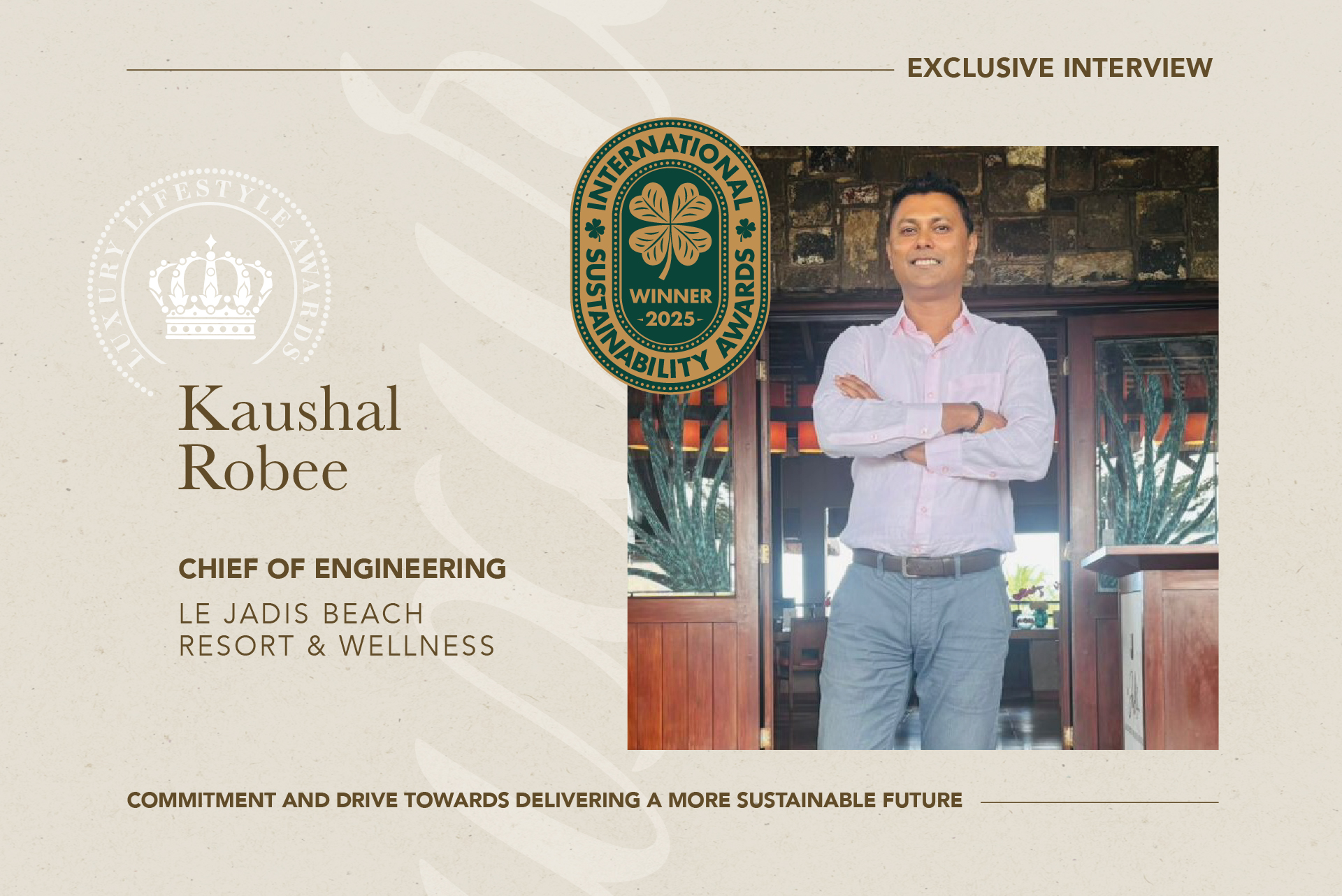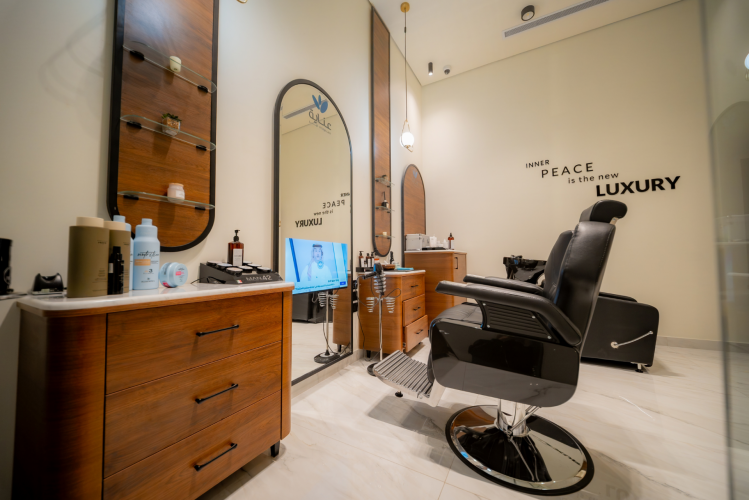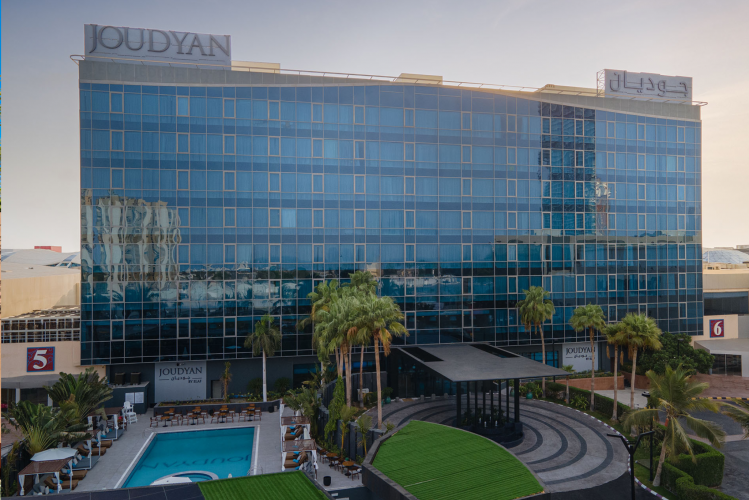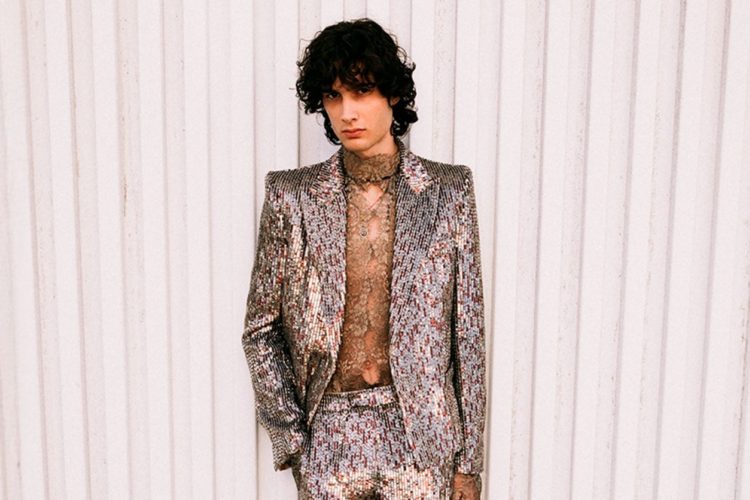Fringed by the serene lagoons of Mauritius, Le Jadis Beach Resort & Wellness is a living blueprint for how luxury and sustainability can thrive side by side. Recently crowned with the 2025 International Sustainability Awards, the resort has reconceived island hospitality by weaving eco-conscious innovation into its very foundations. From solar-powered water systems and reverse osmosis seawater bottling to lush xeriscape gardens irrigated with recycled greywater, Le Jadis is not only reducing its footprint; it is setting new benchmarks for a future where indulgence coexists effortlessly with environmental stewardship.
Behind this flawless fusion of engineering precision and natural harmony is Kaushal Robee, the Director of Engineering, whose vision and expertise have helped transform ambitious green ideals into practical, world-class solutions. With a background that bridges technical mastery and management insight, Kaushal has led projects that turn challenges into opportunities, whether it’s harnessing solar power across the resort, introducing innovative maintenance technologies, or future-proofing the resort with low-carbon, long-life design. His work ensures that every guest experience at Le Jadis is not only exceptional in comfort but also deeply responsible in its impact on the planet.
Alexander Chetchikov, President of the World Luxury Chamber of Commerce, leads our exclusive conversation with Mr. Robee. With more than 17 years dedicated to celebrating the world’s most distinguished luxury brands through the Luxury Lifestyle Awards, he offers unmatched expertise and a refined perspective on the ever-evolving landscape of luxury.
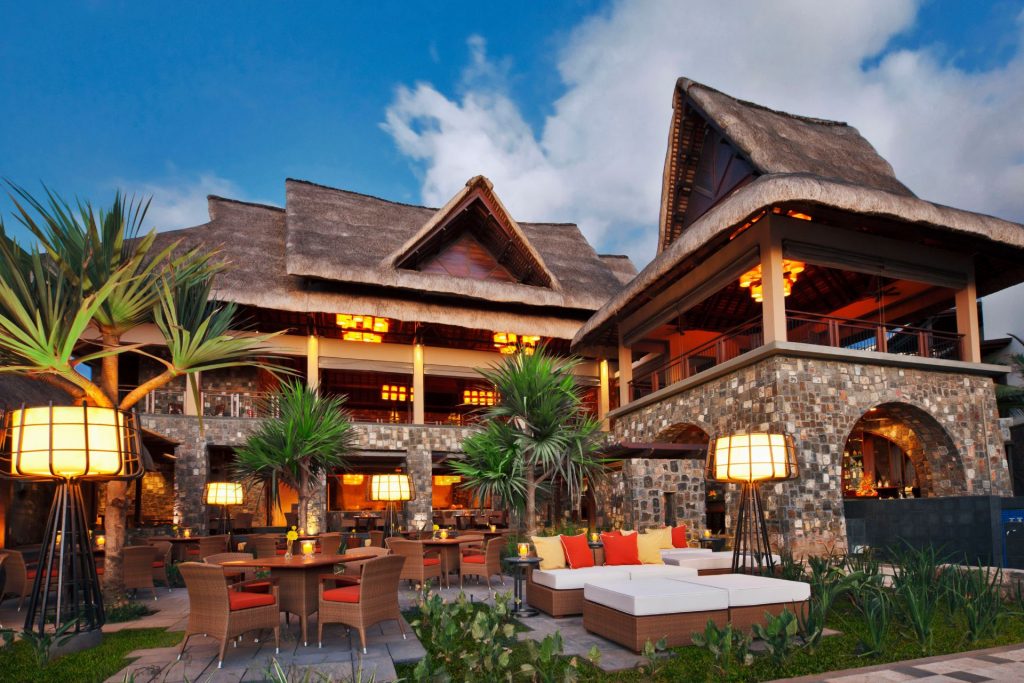
Alexander Chetchikov: Congratulations, Mr Robee, on Le Jadis Beach Resort & Wellness’ International Sustainability Award! Can you share how your role as Director of Engineering at the resort integrates sustainability into everyday operations?
Kaushal Robee: Sustainability is not an optional consideration at the Le Jadis Beach and Resort—it is a business imperative. Here, from the very beginning of the hotel conceptualization, we implemented various strategies with a view to decreasing electrical, water, and gas consumption. And we constantly work in close collaboration with various stakeholders to innovate and implement renewable and sustainable designs on an ongoing basis.
AC: How does your background in both engineering and management help you lead your team in a luxury hospitality setting?
KR: Having the knowledge about engineering principles, life cycle assessment techniques, and sustainability framework helps me to combine technical expertise with people skills. Our team is made up of members of the owning company and engineering colleagues who continuously work on innovative ideas. Additionally, I encourage my team to keep up with emerging trends in technology, which in turn helps us in the feasibility and implementation of sustainable projects. Moreover, project execution needs effective project management skills such as coordination of tasks, timelines, goals, and budget planning. Therefore, blending both engineering and management skills contributes to our common objectives, as well as cutting down hotel operation expenses.
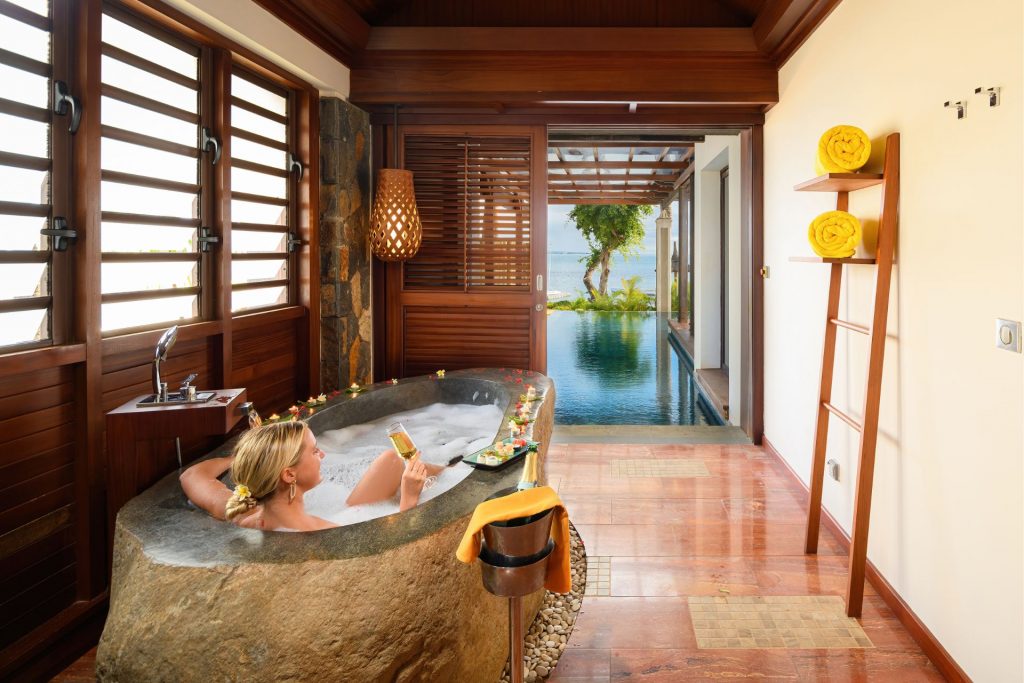
AC: Can you explain how the resort’s low-carbon design and material choices contribute to long-term sustainability and reduced maintenance costs?
KR: Our hotel consists of 100% LED light bulbs. Not only do they have a higher lifetime as compared to conventional bulbs, but they also consume less energy. We are currently working on substituting conventional air conditioning units with DC inverter air conditioning systems in all suites. Our high-rating capacity pumps are equipped with Variable Speed Drives with a view to being more efficient. All our suites’ water heating is done by solar water panels, stored in thermal storage tanks, and ready to be used by guests in their suites. Building-wise, double-glazed openings are being installed, which will help in reducing heat transfer. We also have our own in-house water bottling plant with a view to eliminating the use of single-use plastic. Raw borehole water is being processed through our Reverse Osmosis Desalination plant for the production of pure water (Permeate). This permeate is further filtered through our carbon filters to fill our in-house bottles.
AC: What role does technology, such as E-engineering maintenance software or sensor-activated climate controls, play in achieving Le Jadis’ sustainability goals?
KR: An equipment life cycle consists of different stages such as planning, execution, operation, maintenance, and disposal. Operation and maintenance stages are of paramount importance. Operating equipment ineffectively can lead to a reduction in equipment lifespan or over-consumption of energy. E-engineering software helps in the scheduling, planning, execution (preventive and predictive Maintenance), and data recording. Based on results and parameters, we further devise the plan of actions which help in resource optimization. Several equipment, such as heat pumps, chillers, cold rooms, and water pumps, are connected with IoT tracking, which helps to monitor consumption and spot inefficiencies. To ensure that the building itself is being run efficiently, regular energy audits are carried out to determine the building’s efficiency.
Furthermore, all our public areas are equipped with motion sensors in order to save electrical energy, and likewise, the terrace doors of all our private accommodations feature door sensors to prevent wastage of cooled air.

AC: How do you balance maintaining the resort’s aesthetic and guest experience with the demands of environmental sustainability?
KR: Guest satisfaction is our top priority, and finding the right equilibrium between guests and the resort’s aesthetic is one of our main responsibilities. For example, our roofs are covered with sugarcane thatch roofing. Not only does this enhance the rustic and natural look of the hotel, but it also reduces heat transfer to the interior of the building, thereby reducing the air conditioning cooling loads. Furthermore, most of our swimming Pools are equipped with naturally sanitised water, decreasing the use of chemical products for water treatment.
AC: In your view, how can the hospitality industry as a whole move beyond surface-level “green initiatives” to embrace sustainability as a core philosophy?
KR: Nowadays, we have more and more guests who choose to stay in hotels that are green in their approach and look for sustainable alternatives. This clearly sends a message that hotels are contributing to the welfare of the environment and to the community. When we say that as a hotel or as a business, we are adopting this sustainable principle, it ultimately makes a guest feel proud to be contributing to safeguarding the environment.

AC: What advice would you give to other hotels and resorts seeking to balance operational efficiency, guest experience, and long-term environmental responsibility?
KR: Tourism is one of the major economic pillars of Mauritius. We need to pursue efforts in preserving the natural landscape of the island to which the tourist is attracted. Sustainability can start small; for example, in our case, we also have our small herb garden for kitchen use, and we have our compost area to produce our own fertilizers. As we say in the hospitality industry: “It’s the small details which make the difference”; my advice is to start making small sustainable changes slowly and consistently, to keep our island beautiful and preserve its natural landscapes.
AC: And finally, looking ahead, what upcoming projects, like the Coral Lab or photovoltaic system expansion, excite you most, and why?
KR: Due to global warming and challenging climatic conditions, Mauritius has been affected in recent years, and the marine life surrounding Mauritius has not been spared. The idea here is to start coral breeding from our coral lab and plant back within the marine environment. This will hopefully attract fish and other marine species again, and this will definitely be a plus for our esteemed guests.
Our next project in the pipeline is the installation of Photovoltaic Panels, which will generate power for the hotel’s use. As said, this is our small contribution to the planet by reducing the carbon footprint.
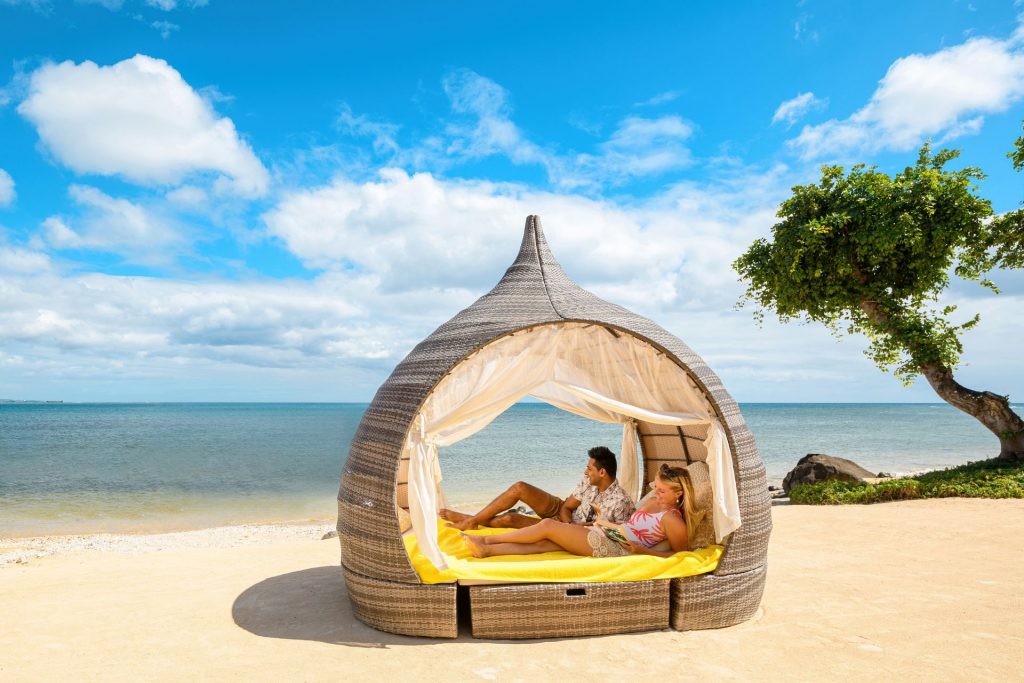
Mr Robee, thank you for taking us behind the scenes of Le Jadis, where engineering ingenuity and sustainability shape not only a resort, but a vision for the future of hospitality.
Visit https://www.lejadis.com/ to find out more today.



